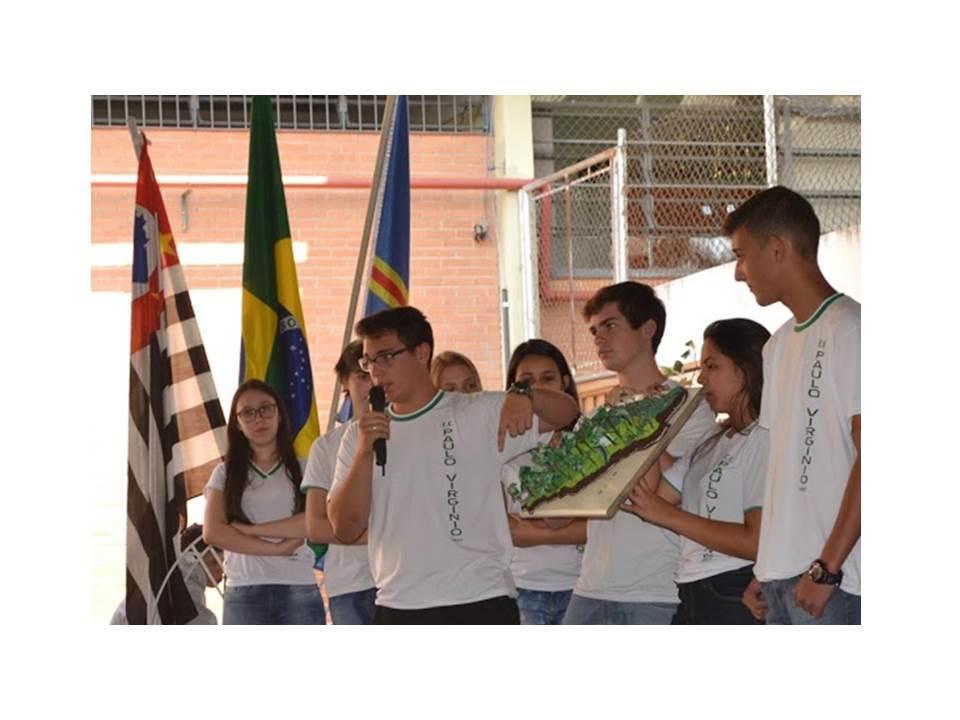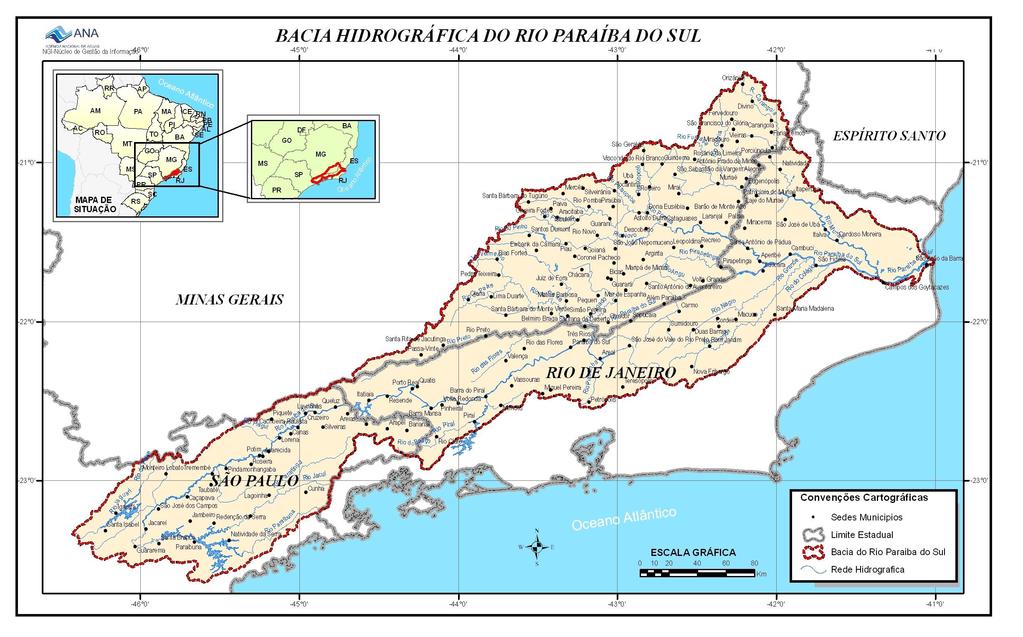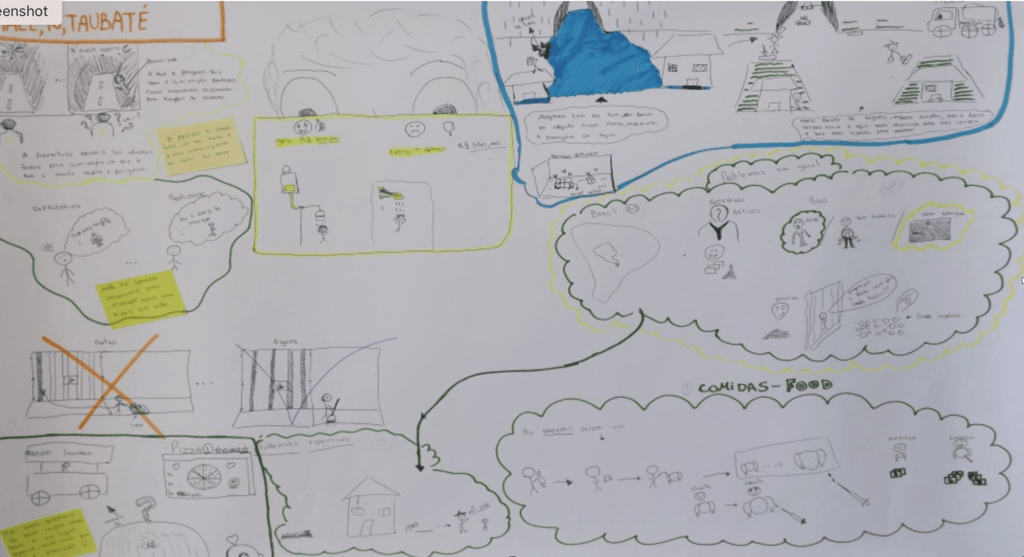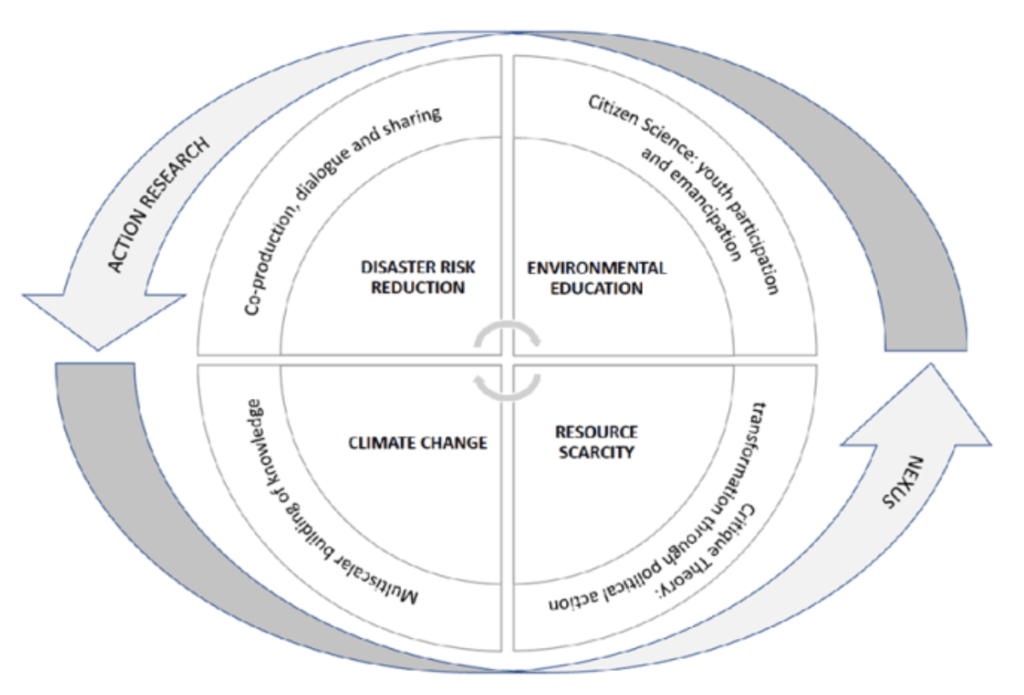Promoting climate change transformation with young people in Brazil: participatory action research through a looping approach
Blog post by Catherine Walker

Young climate activists like Greta Thunberg and Severn Suzuki make headlines when they address high-profile environmental summits such as COP 24 and Rio 92. Yet such opportunities for young activists are not the norm, indeed, young people are often left out of knowledge production for climate action.
So how can young people’s insights convert to transformative knowledge and action on climate change?

This question is at the heart of our contribution to the ARJ Special Issue on Climate Change Transformations. We tell the story of how two teams researching environmental issues with young people in the Paraiba Valley, Brazil, came to work together, developing a ‘looping methodology’ to weave our projects together.
In participatory action research led by the Brazilian Government’s National Centre for Monitoring and Early Warning of Natural Disasters (Cemaden), Cemaden’s education team created school-based ‘micro-centres’ to monitor and build resilience in a region prone to water and climate-related disasters (see news coverage – in Portuguese – of the process here).
In the (Re)Connect the Nexus (RCTN) project, young people worked with university-based geographers and engineers to create ‘nexus webs’ that map the intersecting flows of food, energy in their lives and show how these flows are disrupted by climatic, political and economic changes.

Our article reflects on the different ways in which research, analysis, reflection and action – all with young people – work in dialogue with one another.
This process is ongoing: hence our ‘looping methodology’. We invite you to consider and continue these kinds of dialogues in your own work. Working with young people, we can build an intergenerational chorus of voices calling not just for action but for long-lasting transformations to prevent the worst effects of climate change.

Click to watch Marina Apgar interview Catherine Walker!
We invite you to learn more about this experience by reading our article in the Special Issue of Action Research HERE.
After you’ve had a chance to read this piece, please share your thoughts, ideas, or experiences with our community in the comments below so we can continue this discussion!
- Making Public Deliberations Inclusive with Mixed Methods AR - October 26, 2020
- Participatory action research with Aboriginal Elders: Ngulluk Koolunga Ngulluk Koort project - October 12, 2020
- Bringing the relational self to ART: Interview with Dr. Yvonne Skipper - October 1, 2020
